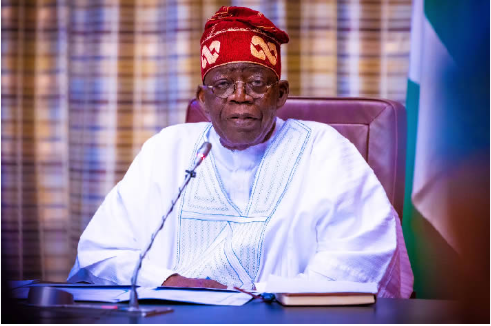The federal government on Tuesday, September 5, set up an eight-member committee to unveil a roadmap for the education sector in line with the Renewed Hope agenda of President Bola Tinubu.
The eight-member committee was inaugurated by the Minister of Education, Professor Tahir Mamman in Abuja.
The committee, headed by Dr. Nuhu Yakubu, has as one of its members a former Deputy Director-General of the Nigerian Law School, Prof. Ernest Ojukwu, and Professor Sa’ad Umar.
Other members of the committee included: Prof. Sa’ad Umar, Shulamite Paul, Dr Garba Ibrahim, Prof. Ismail Junaidu, Hajia Hindatu Abdullahi, and Mr Joseph Achede.
The committee was given four weeks to come up with plans that would help transform the sector.
He said there was a need to kickstart the national assignment as ministers on a clearly defined path, to craft a turnaround in the fortunes of the country.
Mamman said President Tinubu’s commitment to re-train 10.5 million Nigerian out-of-school children with valuable skills places education as a top priority.
He said there was therefore a need for a clear roadmap and framework to guide the ministry’s efforts in achieving these ambitious goals.
While inaugurating the committee, the minister said,
“Mr. President has clearly laid out his vision for his administration and it is anchored on improving the lives of Nigerians in a manner that not just reflects our humanity but encourages compassion towards one another, and duly rewards our collective efforts to resolve the social ills that seek to divide us.
“On education specifically, our president has declared his commitment and as a priority, among other missions, to see that about 10.5 million Nigeria’s out-of-school children are re-trained with skills that will make them stand on their own. We will, therefore, need a clear road map and framework that will guide the ministry to achieve these goals.
“To achieve this vision, we must harness our human resources. But before we can harness our human resources, we need to be sure of what we need to do to fill in the gaps that have, over the years, inexplicably pulled us back.”
Addressing the committee members on the task ahead, Mamman said: “Permit me to highlight some of the issues you may need to look at, amongst all others. As Nigeria looks towards having quality education, it is important that the curriculum, from basic to tertiary level, meets the demands of our times and needs of the society.
“I am happy to note that work has commenced at some level, especially the secondary and tertiary levels. What we need to know is to what extent can what we already have to meet contemporary demands of education globally and if it is not sufficient, how to address them.
“Of course, I do not need to emphasise the infrastructural deficit which the Universal Basic Education Commission and Tertiary Education Trust fund, as well as good-minded Nigerians, philanthropists and our development partners, have been supporting. Again, we ask ourselves to what extent has such gone in putting the country where it needs to be?
The minister urged the committee to embrace technology and steer towards a digital future, emphasising that education should not merely exist for its sake but contribute significantly to individual and societal development.


